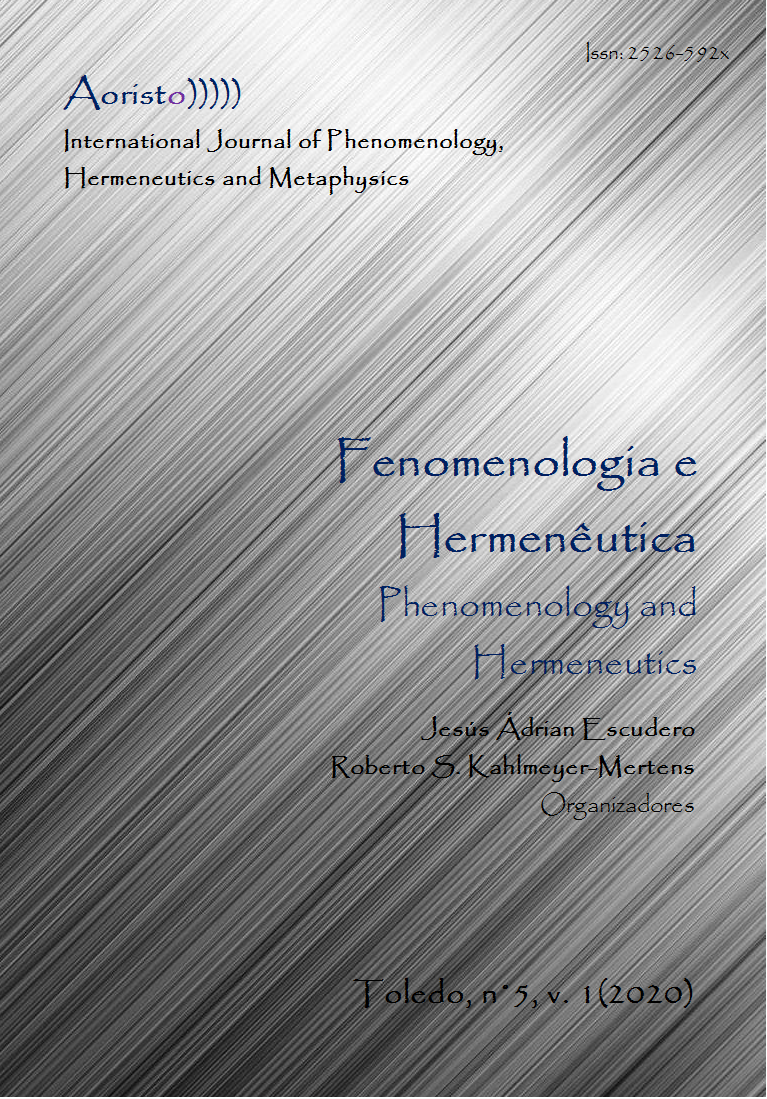For a metaphysics out of joint:
Deleuze, Heidegger: pathways between metaphysics and transcendental philosophy
DOI:
https://doi.org/10.48075/aoristo.v3i1.24883Palabras clave:
Metaphysics, transcendental philosophy, metaphysics out of joint, Heidegger, DeleuzeResumen
In Heidegger the ontological difference is one between any intra-worldly entities and the very horizon of their appearing, the world itself. Both E. Fink and J.-P. Sartre elaborated on this, and so further did Deleuze; even his and Guattari’s Anti-Oedipus draws ultimately on the utterly Heideggerian idea of an ontological difference as one between world and worldly entities. Now the very architecture of traditional (Wolffian) special metaphysics – although programmatically entity-oriented – gets thereby affected, namely in its first part, rational psychology. From Heidegger through Fink and Sartre until Deleuze, the move of opening the metaphysical dimension of thought to the transcendental one in order to do justice to the ontological difference goes along with that of blowing psychology up (and indeed psyche itself) within the very domain of metaphysics.Descargas
Publicado
Cómo citar
Número
Sección
Licencia
Derechos de autor 2020 Aoristo - International Journal of Phenomenology, Hermeneutics and Metaphysics

Esta obra está bajo una licencia internacional Creative Commons Atribución-NoComercial-SinDerivadas 4.0.
Copyright Notice
1. I grant the AORISTO – International Journal of Phenomenology, Hermeneutics and Metaphysics the first publication of my article, licensed under Creative Commons Attribution (which allows sharing of work, recognition of authorship and initial publication in this journal).
2. I confirm that my article is not being submitted to another publication and has not been published in its entirely on another journal. I take full responsibility for its originality and I will also claim responsibility for charges from claims by third parties concerning the authorship of the article.
3. I also agree that the manuscript will be submitted according to the Aoristo’s publication rules described above.
License Creative Commons
This work is licensed under a Creative Commons Atribuição-NãoComercial-CompartilhaIgual 4.0 Internacional, which allows you to share, copy, distribute, display, reproduce, in whole or in part, for as long as there is no commercial purpose, and authors and source are cited.


